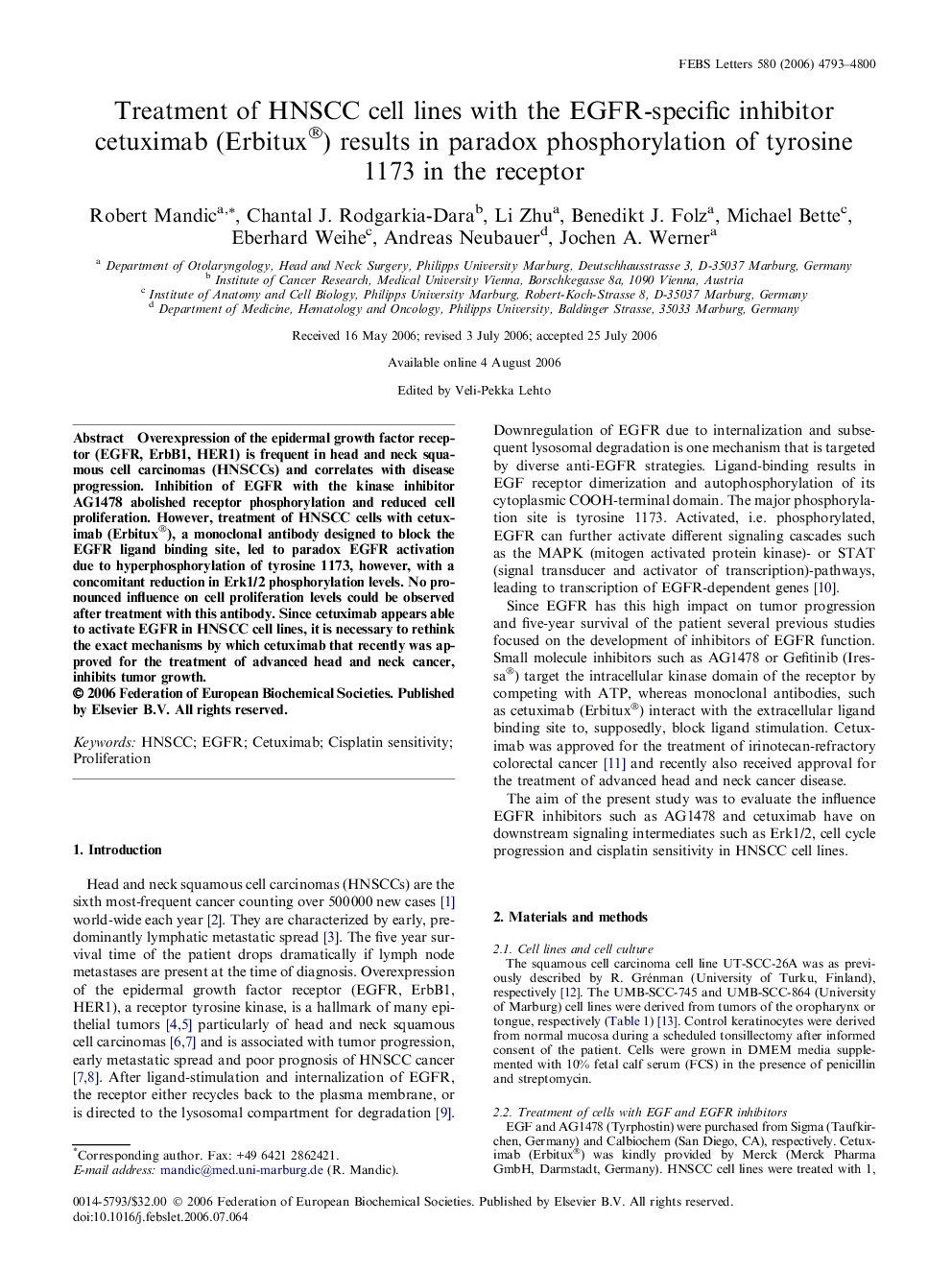| Article ID | Journal | Published Year | Pages | File Type |
|---|---|---|---|---|
| 2052475 | FEBS Letters | 2006 | 8 Pages |
Overexpression of the epidermal growth factor receptor (EGFR, ErbB1, HER1) is frequent in head and neck squamous cell carcinomas (HNSCCs) and correlates with disease progression. Inhibition of EGFR with the kinase inhibitor AG1478 abolished receptor phosphorylation and reduced cell proliferation. However, treatment of HNSCC cells with cetuximab (Erbitux®), a monoclonal antibody designed to block the EGFR ligand binding site, led to paradox EGFR activation due to hyperphosphorylation of tyrosine 1173, however, with a concomitant reduction in Erk1/2 phosphorylation levels. No pronounced influence on cell proliferation levels could be observed after treatment with this antibody. Since cetuximab appears able to activate EGFR in HNSCC cell lines, it is necessary to rethink the exact mechanisms by which cetuximab that recently was approved for the treatment of advanced head and neck cancer, inhibits tumor growth.
